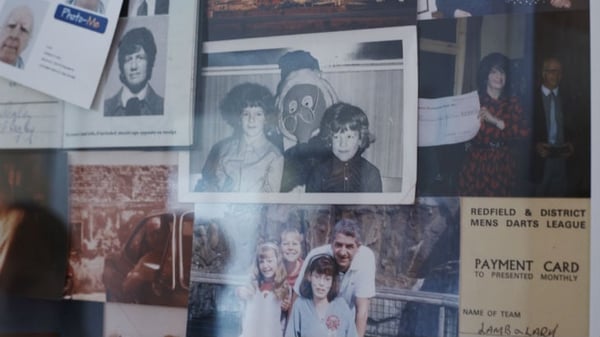The importance of writing a will
Writing a will allows you to have control over what happens to your property, money and belongings after you die. According to research over half of UK adults (51%) haven’t made a will, and nearly a third (30%) of those over 55 do not have a will1. But what should you put in a will and how does the process work?
Read our guide on how to leave a house and other assets to someone in a will.

Take a look at more of our articles
There are plenty of things to consider when making a will. Here are ten reasons why writing a will is a good idea.
| 1. Control your estate. The main concern for most people when writing a will is to make sure their money and possessions are distributed in the way they prefer. | 6. Avoid intestacy rules. If you die without making a will, your estate will be divided according to set rules rather than your intentions. |
| 2. Reduce stress for your next of kin. After the death of a loved one, the amount of bureaucracy and arrangements to be made can be overwhelming. Writing a will may help alleviate that problem. | 7. Help to manage your Inheritance Tax. Anything in your estate above £325,000 (2024/25 tax year) maybe liable for Inheritance Tax, so making arrangements in your will can help to manage the amount of inheritance tax your estate is liable for. |
| 3. Avoid arguments. Your family and other beneficiaries will have your wishes clearly laid out, taking out the guesswork over who gets what. | 8. Give to organisations or charities. It’s not just people who can benefit from your will, but organisations and causes close to your heart can do too. |
| 4. Make provision for your children. If you have children under 18, you can specify who you would like to become their guardian, rather than entrusting the decision to the courtroom. | 9. Protect your digital assets. Increasingly, our treasured possessions are accessed digitally, from photographs to password-protected documents. Find out more about what happens to their digital legacy after they pass away. |
| 5. Make your funeral requests clear. A will is also where you can set out the kind of funeral you’d like, from whether you’d prefer to be buried or cremated, as well as your choice of music. | 10. Care for your pets. Your will can include provisions for any pets you have, such as who should look after them. |
In formal terms, if you die without writing a will you’ve died intestate, and what you leave becomes subject to intestacy laws. If there are no surviving relatives who can inherit under the rules of intestacy, the estate passes to the Crown. This is known as bona vacantia. The Treasury Solicitor is then responsible for dealing with the estate.
The intestacy laws are designed to help decide who’s entitled to your estate under the rules of inheritance. A significant disadvantage is that your estate may not pass to the people you want to benefit. For example, if you were married or had a civil partner, there’s no guarantee your children or grandchildren would receive anything unless you leave an estate worth over £322,000 (in England and Wales). This applies to detahs on or after 26th July 2023.
You can find out more about the rules of intestacy at GOV.UK.
The importance of a will for unmarried couples
If you’re not married or in a civil partnership and your partner dies, you will not be automatically able to inherit anything. The same applies if your relationship to the deceased was that of a friend, carer or relative by marriage.
If you’re unmarried and you have children, they will inherit the estate under the rules of intestacy. This underlines why it’s important that unmarried couples write a will to protect their financial future.

Ideally, you should write your will at the earliest opportunity. In practice, though, people tend to write theirs when they hit key milestones in life, like buying their first home, getting married or entering a civil partnership or having children. These are the moments in life where you start to accumulate an estate and have dependents for the first time, which may focus the mind on what will happen to them when you’re no longer around.
Alternatively, you might be prompted by the death of a close relative, or divorced; these events act as a reminder that life can be unpredictable, and that it’s a good idea to make provisions for the future.
Ultimately, it’s hard to know when or even how to leave assets like a house to someone in a will, but it’s wise to be proactive, as making a will ensures your estate goes to the people you want.
How to make a will
Making a will isn’t something that happens overnight, but here is a summary of five steps you should follow when deciding how to distribute your estate.
- Get your estate valued – You should calculate your total assets, such as your property, savings and investments, as well as your debts, including any outstanding mortgages, credit card loans and your bank overdraft.
- Divide your estate – Once you’ve valued your estate, it’s time to think about who should benefit from it. It’s also an opportunity to figure out contingencies, such as what happens if one of your named beneficiaries dies before you.
- Choose your executors – Naming an executor of a will is an important step in ensuring your estate will be dealt with according to your wishes.
- Write your will – At this stage, you’re ready to finalise the will in writing. There are various ways you can get a will written, as we’ll cover later in this guide.
- Sign and store your will – Finally, in England and Wales, a valid will must be signed in the presence of two independent witnesses. You will then need to store the will, either at home or safely with the Probate Service, solicitors or bank.
You can even make your will yourself, but realistically, you should only write a DIY will if your wishes are simple.
To make your will official as a legal document it should:
- Be made in writing
- Clarify it was made voluntarily, when you were of sound mind
- Be made by someone 18 and over
- Signed and dated by you in the presence of two witnesses, who must also sign it in turn in your presence. The witnesses must 18 and over, such as a neighbour, friend or colleague.
It’s worth bearing in mind that your witnesses should not be beneficiaries of the will, married to a beneficiary or blind.
These rules apply to wills that are executed in England and Wales. The rules for making a will legal in Scotland are slightly different.
Discussing your wishes with your loved ones
It’s never an easy conversation to have, but talking to those close to you about your wishes after your death can help prevent any arguments or misunderstandings after the event. It’s also an opportunity to find out what treasured possessions they value and might like to receive.
Writing a will is part of making your passing a little easier for your loved ones, and reducing the stress of sorting out your belongings and your estate.
We also have further articles arounder this broader subject:
Protect your family's future by writing a will
Getting professional support when it comes to writing a will means your money, assets and possessions can be safely transferred from one generation to the next. For more guidance on writing a will, Citizens Advice and GOV.UK have online resources.
And if you’re thinking of planning ahead in general, our Over 50s Fixed Life Insurance could allow you to leave a fixed cash sum to your loved ones when you pass away, which could be used to help contribute towards your funeral costs or be left as a gift. If you are looking to leave a cash sum to help contribute towards funeral costs you can choose to add the Funeral Benefit Option to your plan. Terms and conditions apply.
Sources:
1. From research carried out by Canadalife in March 2024






